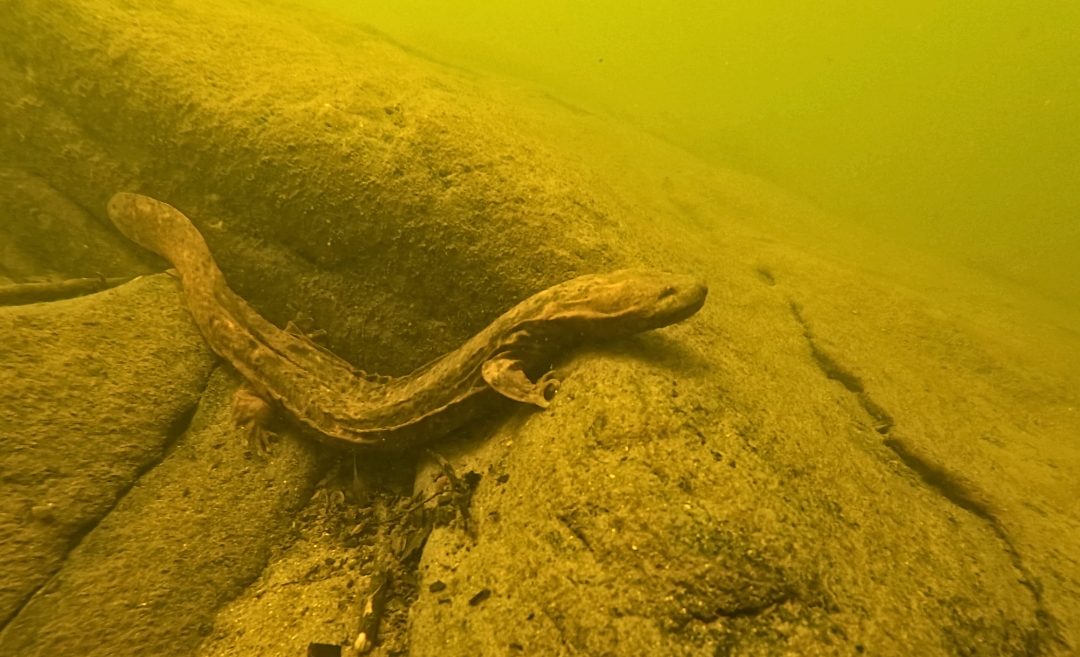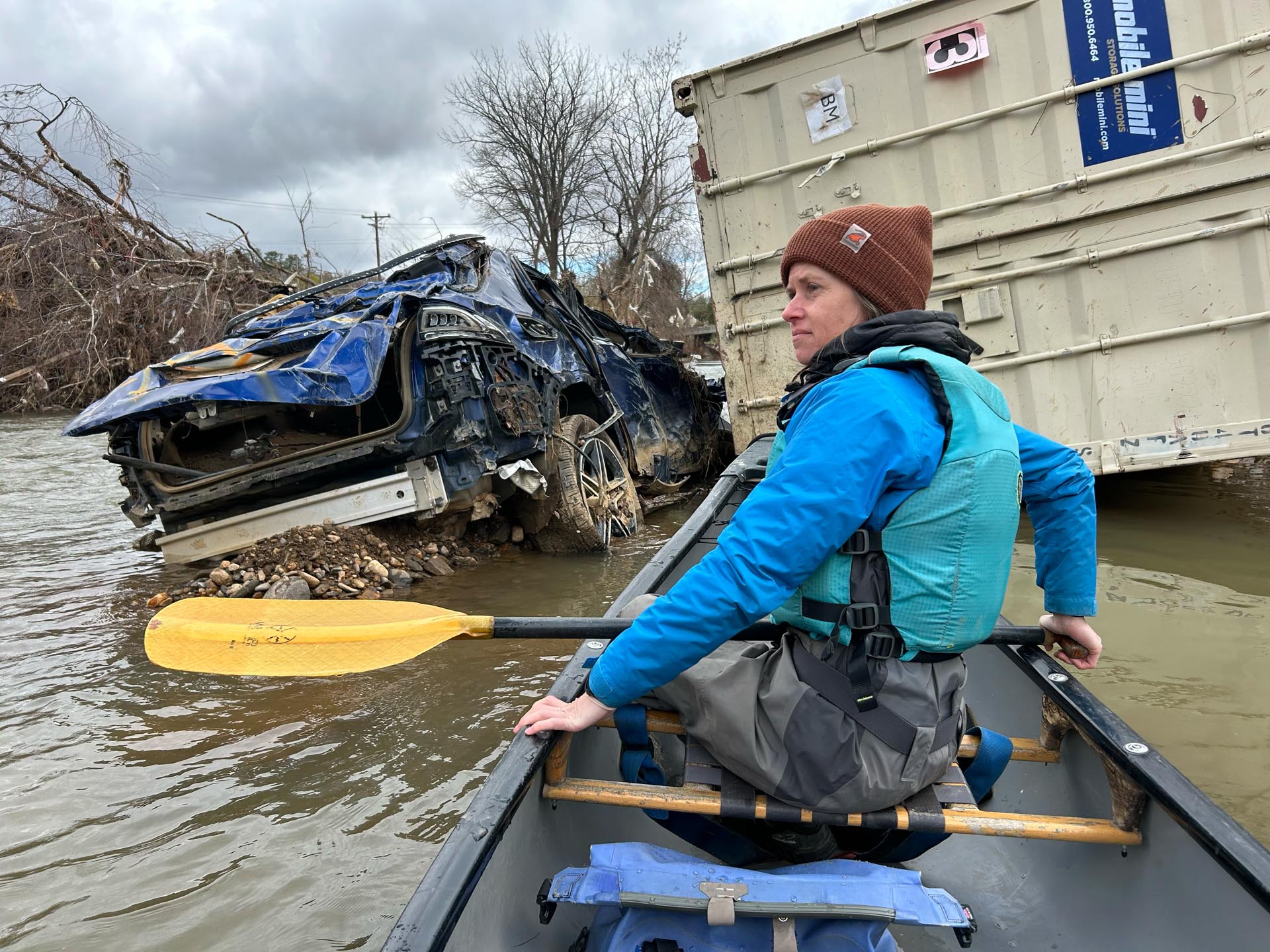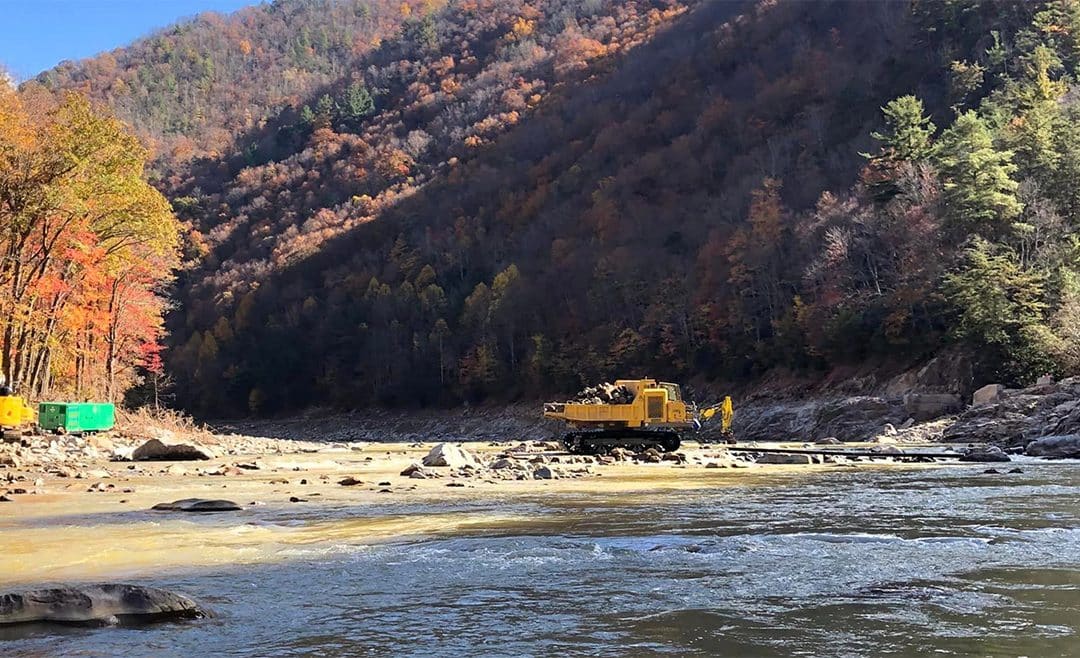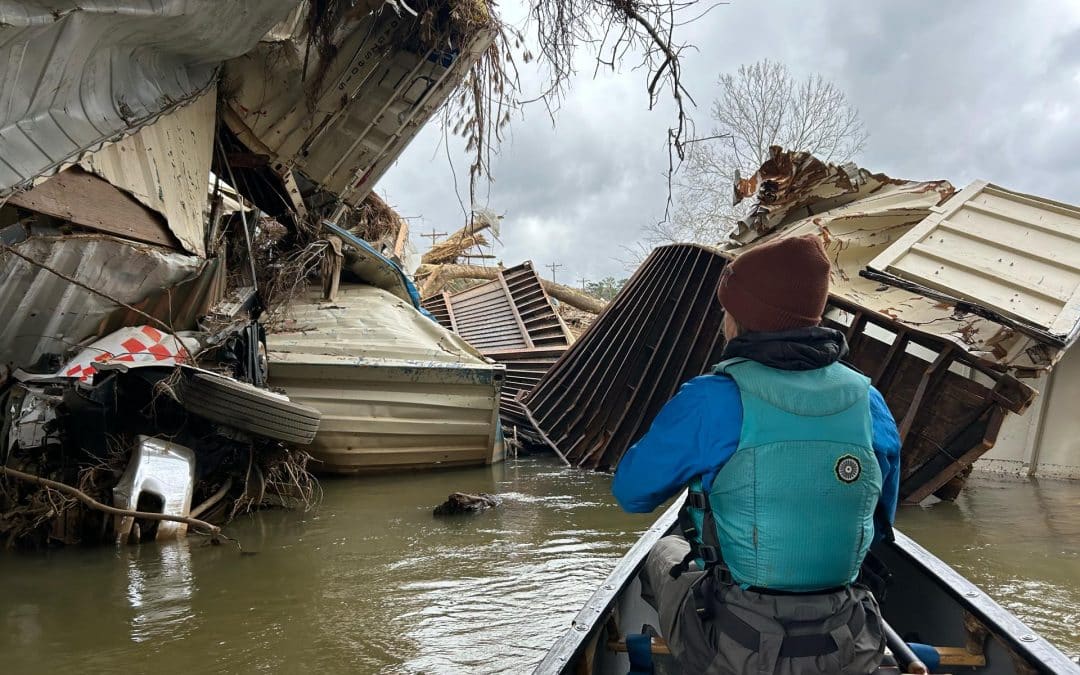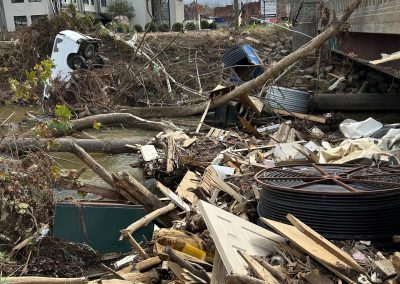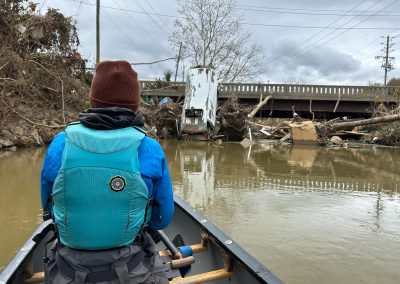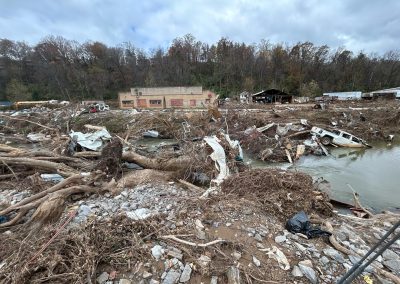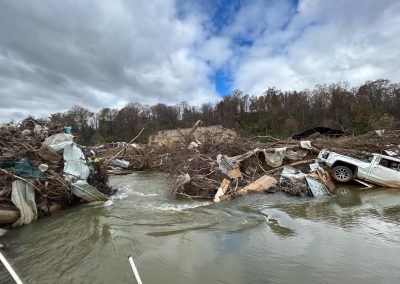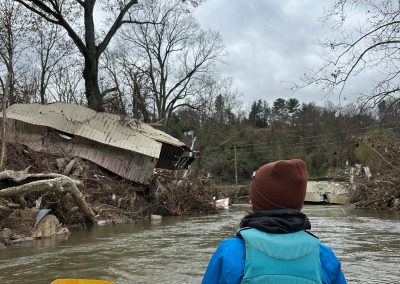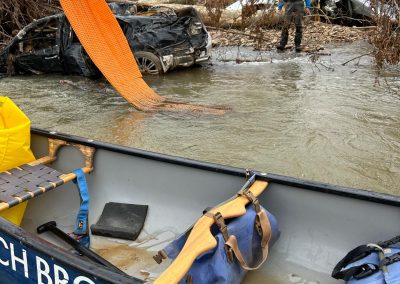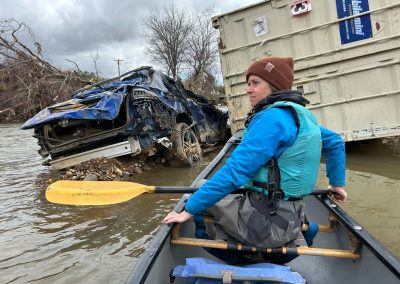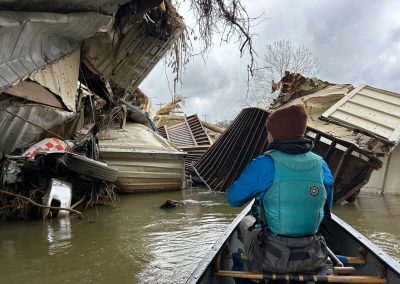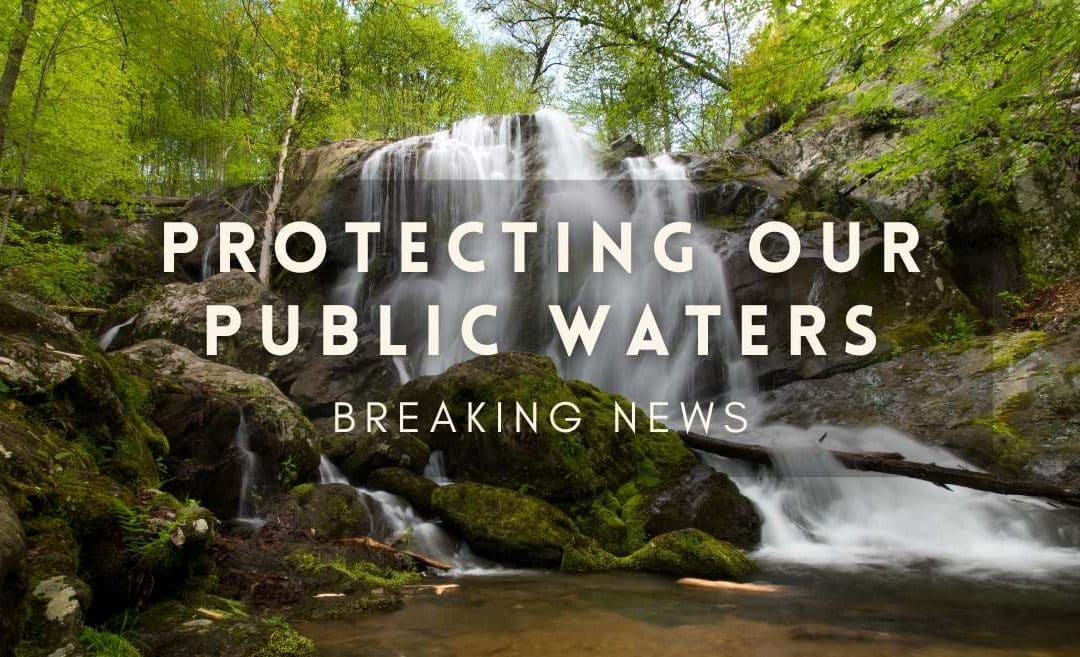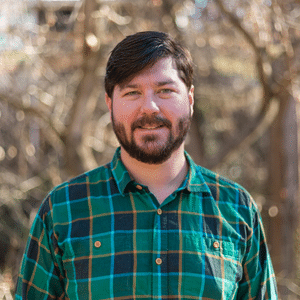The following is a letter sent to our members on Wednesday, August 28, 2024, announcing MountainTrue’s decision to petition the U.S. Environmental Protection Agency to withdraw North Carolina’s authority to regulate water pollution.
Dear members and supporters,
I’m writing to share some important news with you regarding the future of North Carolina’s water quality, environment, and public health. MountainTrue has always been committed to safeguarding the public water resources of Western North Carolina. Our mission to protect the health of our waterways and the well-being of our communities has never been more critical. However, the obstacles we now face have made it clear that the state cannot meet its obligations under the Clean Water Act.
Therefore, MountainTrue has joined the Southern Environmental Law Center, Cape Fear River Watch, Environmental Justice Community Action Network, and the Haw River Assembly in filing a formal petition asking the U.S. Environmental Protection Agency to withdraw North Carolina’s authority to regulate water pollution. This action is necessary because the state legislature has crippled the NC Department of Environmental Quality’s ability to protect our waterways, drinking water sources, and communities from harmful pollution.
As with most states, EPA delegates authority to North Carolina to regulate pollution from industry and wastewater treatment plants into rivers, lakes, and other waters through the “National Pollutant Discharge Elimination System” program. This means the state takes on EPA’s legal duty to issue water pollution permits that protect North Carolina waters, to solicit participation from the public, and to enforce against any polluters that violate water quality laws.
Unfortunately, the North Carolina General Assembly has systematically undermined the Department of Environmental Quality and the Environmental Management Commission to the point that the state can no longer effectively protect our waters.
These legislative actions have led to weakened permits, an inability to regulate toxic chemicals effectively, and a state budget that leaves DEQ severely underfunded. As a result, industrial facilities are allowed to operate under expired permits with outdated protections, efforts to better protect the public and enforce against polluters are routinely blocked, and North Carolinians are exposed to more pollution in our waterways and drinking water sources.
Moreover, recent changes to state law have given final authority over water pollution permits to the North Carolina Office of Administrative Hearings, an entity that is not equipped to prioritize public health and environmental safety. This shift not only sidelines DEQ’s expertise but also cuts the public out of the permitting process altogether.
Given these circumstances, we believe that the only path forward is to request that the EPA reclaim its authority over water pollution regulation in North Carolina. This is a drastic measure, but one that is necessary to ensure that our waters and communities are protected from the serious threats posed by unchecked pollution.
We understand that this news may be concerning, and we want to assure you that MountainTrue will continue to fight tirelessly for clean water and healthy communities. We will keep you informed of any developments as the EPA considers our petition and takes action.
Thank you for your continued support and commitment to protecting our precious public waters.
Sincerely,
